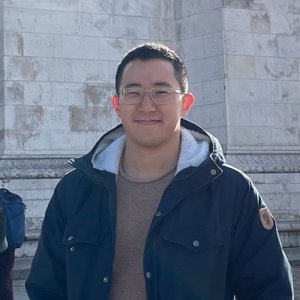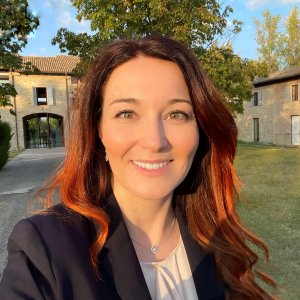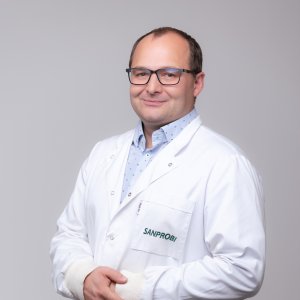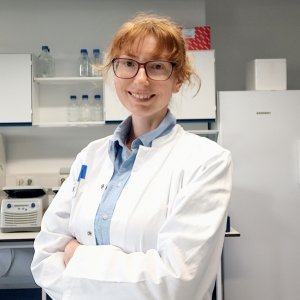Young Researchers of IMMEDIATE

GueHo Jang
Charite
GueHo Jang

Position
PhD student
Institution/Lab
Charite
Major Fields of Research/Activity
Data science, clinical science, MRI analysis, proteomics analysis
Share this Interview
www.immediate-project.eu/who-we-are/interview#gueho-jang
What are you currently working on within the scope of IMMEDIATE and what are your main goals and objectives in the project?
Environmental factors, such as diet, smoking and physical activity can influence body's immune response, potentially leading to chronic inflammation. This persistent inflammation can disrupt various bodily functions, including those in the brain, and may contribute to brain damage. My current research focuses on analyzing a complex network of factors that drive chronic immune response and their connection to neurological outcomes.
What do you particularly like about your field of research?
For me, uncovering insights from complex clinical data feels like solving intricate puzzles or assembling LEGO blocks. The process can be long and mentally demanding, but the sense of accomplishment at the end is deeply rewarding. That's what I enjoy about this research.
What motivates you, personally, to work on this project?
After years of study, I’m eager to apply my expertise to make an impact. The IMMEDIATE project offers a unique opportunity to deliver meaningful results that can inform clinical decisions and improve public health. This is what motivates me to be part of this work.
What are your goals after the project?
My goal is to build on this experience to address a broader range of clinical questions across different domains. As health data continues to grow in volume and complexity worldwide, there is a critical need for rigorous analysis. I’m driven to meet that need to transform curiosity into scientifically grounded insights, not misinformation.
What advice would you give to aspiring researchers?
While I may not be in a position to give advice to other researchers, one key lesson I’ve learned is the value of seeking help when facing challenges. Whether it’s your supervisor, colleagues or even AI tools, reaching out can open up new perspectives and solutions. Many times, I’ve faced what felt like dead ends, only to find a way forward through insights and support from others.

Giulia Vismara
Zadig srl
Giulia Vismara

Position
Scientific Content Manager
Institution/Lab
Zadig srl
Major Fields of Research/Activity
Apps development, implementation and deployment
Share this Interview
www.immediate-project.eu/who-we-are/interview#giulia-vismara
What are you currently working on within the scope of IMMEDIATE and what are your main goals and objectives in the project?
In the IMMEDIATE Project, my team and I are focusing on creating and refining a set of applications and APIs to facilitate communication between researchers and the public, including clinical study participants. The app will be prototyped in English and tested with study participants, and their well-being profiles will be delivered at the end of the study. To support health professionals, we will create a distance learning program delivered through an e-learning platform. This program will include modules on the diet-microbiome-metabolite-chronic inflammation axis and training on the IMMEDI-APP. It will be available in multiple languages, aiming to enhance healthcare professionals' knowledge and encourage them to utilize the app in their practice.
Our main goals are to enhance communication between researchers and participants, promote health education, and develop user-centred digital tools that contribute to the project’s objectives.
What do you particularly like about your field of research?
What I particularly appreciate about my field of research is its dynamic nature and the vibrant community of scholars it encompasses. The field is constantly evolving with new discoveries and emerging trends, which keeps the work exciting and full of potential. Additionally, there are numerous opportunities to engage with researchers from various disciplines, fostering collaboration and the exchange of innovative ideas. This interconnectedness not only enriches the research experience but also contributes to the advancement of knowledge in meaningful and impactful ways.
What inspired you to go into science?
My inspiration to pursue a career in science stems from a deep fascination with the unknown and the boundless opportunities for discovery. From a young age, I was captivated by the idea that there are countless mysteries waiting to be unravelled. The prospect of contributing to our understanding of the natural world and potentially making groundbreaking discoveries fuels my passion. Science offers a dynamic platform for exploration, where each new research endeavour opens doors to innovative insights and solutions. The opportunity to push the boundaries of knowledge and uncover new phenomena is what truly drives me in this field.
In your words, what will be the impact of IMMEDIATE on society?
The IMMEDIATE Project is set to make a profound impact on society by shifting our approach to health and disease. By investigating how our diet, microbiome, and immune system interact, it aims to address chronic inflammation. What excites me is the project's focus on early detection. By identifying biomarkers and risk factors before they lead to serious health problems, we can implement personalized interventions to prevent irreversible damage. The use of cutting-edge technologies and AI to create individualized risk and resilience scores is particularly promising. I'm also looking forward to seeing the outcomes of their intervention studies, such as those involving the anti-inflammatory microbe Akkermansia muciniphila. If these interventions prove effective, it could mean real improvements in both biomarkers and clinical outcomes. Additionally, the mobile apps being developed will be a game-changer, enabling people to track their health and make informed decisions based on real-time feedback. Overall, IMMEDIATE has the potential to empower individuals to take charge of their health and improve overall well-being, which could have a huge positive impact on society.
What motivates you, personally, to work on this project?
Personally, I'm motivated to work on this project because it represents a tangible opportunity to make a meaningful difference in people's lives.
The combination of cutting-edge technology and the focus on individualized health solutions resonates with me. I believe that empowering people with the knowledge and tools to manage their own health can lead to profound improvements in overall well-being. Additionally, the collaborative aspect of the project, involving diverse expertise and innovative approaches, inspires me. It’s motivating to be part of a forward-thinking initiative that seeks to bridge the gap between scientific research and real-world applications, ultimately aiming to improve health outcomes on a broad scale.
What are your goals after the project?
After the project, my goals are to build on the insights and advancements we’ve made to further the application of personalized health interventions.
I also aim to continue working on innovative approaches that leverage emerging technologies, such as AI, to address other pressing health challenges. Expanding on the knowledge gained from this project, I hope to contribute to developing new tools and strategies for early detection and prevention of diseases. Ultimately, I want to help translate the breakthroughs we achieve into real-world solutions that can improve health outcomes for individuals and communities.
What advice would you give to aspiring researchers?
For aspiring researchers, it’s important to foster a deep sense of curiosity and passion for your subject matter. This intrinsic motivation will not only sustain you through the inevitable challenges but also fuel your creativity and drive. Building a strong foundation in the fundamentals of your field will enable you to approach complex questions with confidence and expertise.
Being well-organized is key; keeping meticulous records of your work and managing your data effectively can make a significant difference in the quality of your research. Collaboration is another vital aspect—engaging with peers and mentors can provide fresh perspectives and enhance your research.
Resilience is crucial as well; the research journey is often fraught with obstacles and setbacks, but learning to persevere through difficulties is essential. Effective communication of your findings, both in writing and presentations, is necessary to share your discoveries and contribute to the broader scientific community.
Ethical integrity must guide your research practices, ensuring that your work is credible and trustworthy. Lastly, balancing your research with other aspects of life and managing your time wisely will help you stay productive and avoid burnout. By embracing these principles, you’ll be well-equipped to make meaningful contributions to your field.

Daniel Styburski
Sanprobi
Daniel Styburski

Position
Mass Spectrometry Specialist
Institution/Lab
Sanprobi
Major Fields of Research/Activity
Microbiome
Share this Interview
www.immediate-project.eu/who-we-are/interview#daniel-styburski
What are you currently working on within the scope of IMMEDIATE and what are your main goals and objectives in the project?
Currently, I am studying the effect of Akkermancia muciniphila on the level of short-chain fatty acids in faeces. My main task is to prepare and perform the analysis of short-chain fatty acid concentrations using the LC -TOF MS/MS technique.
What do you particularly like about your field of research?
The possibility of studying the interactions between the bacterial microbiome and the human body. Many scientific studies have shown the great role of the human microbiome in the well-being of the body. Still, the complexity of the processes that occur between the host and microorganisms makes the discovery of these relationships very difficult but on the other hand exciting. We must remember that human evolution would not have been possible if bacteria had not existed before. This shows how big of a role they play in our lives and how dependent we are on them.
What inspired you to go into science?
The desire to learn, discover and deepen knowledge about the biochemistry of the human body and in particular commensalism between humans and bacteria.
In your words, what will be the impact of IMMEDIATE on society?
I think that the project can contribute to the earlier detection of some diseases, especially those related to chronic inflammation, which will ultimately help in faster recovery. I also believe that the conclusions from the research will help in health education to avoid many diseases in the future.
What motivates you, personally, to work on this project?
The IMMEDIATE project is in many ways consistent with my scientific interests. Moreover, thanks to the project I can meet many people with whom I can exchange experiences. As a result, it encourages reflection and motivates further experiments.
What are your goals after the project?
Further research in the area of microbiome.
What advice would you give to aspiring researchers?
Learn by doing. Then it is easier for us to find a field that will fascinate us.

Olena Potapenko
Charité (ECRC)
Olena Potapenko

Position
PhD Student
Institution/Lab
Charité (ECRC)
Major Fields of Research/Activity
Immune dynamics in kidney transplantation
Share this Interview
www.immediate-project.eu/who-we-are/interview#olena-potapenko
What are you currently working on within the scope of IMMEDIATE and what are your main goals and objectives in the project?
I am working on the KTX360 cohort. It is a large kidney transplantation study, and we are focusing on the relationship between the immune system and metabolites produced by gut bacteria and how those affect outcomes after the transplantation. Unfortunately, after receiving the transplant and getting a chance to live without burning on dialysis, we observe that many patients are rapidly losing kidney function. However, we also know that some patients are doing better, and their decline in kidney function is not so extreme. The idea behind this is that chronic inflammation primarily contributes to kidney failure after the transplantation. Within the cohort, I am investigating how health issues develop and vary among individuals after transplantation, considering proteomic, metabolomic and immunomic levels.
What do you particularly like about your field of research?
I love how my field is interconnected—it touches many biological aspects, including pathophysiology and immunology, which extend into metabolism, biochemistry, and molecular biology. On top of that, it requires specialized knowledge in data analysis and computational skills. I feel incredibly fortunate to have gained such a broad and deep understanding through this project.
What inspired you to go into science?
I've always been curious about how things work, especially how the human body functions. As a child, I dreamed of becoming a doctor. Over time, my interest in biology grew to include technical fields simply because many diseases remain poorly understood, making treatment either challenging or ineffective. This realisation led me to pursue a second bachelor's degree in biotechnology. I wouldn’t say there was a moment when something specifically inspired me to go into science; rather, I immersed myself in it out of pure curiosity. What keeps me in science, however, is the outstanding collaborative atmosphere and example set by my colleagues, whose passion and dedication continue to inspire me.
In your words, what will be the impact of IMMEDIATE on society?
I firmly believe that we are what we eat. Every day, we nourish not just our bodies, but also the millions of microorganisms living within us. We know that the microbiome can be modified, which in turn affects immune homeostasis. IMMEDIATE aims to improve metabolic health through diet, focusing on healthy individuals and transplant recipients. The potential impact could be profound, as the project has practical aspects, - developing tools that help people live healthier lives, while addressing existing health issues and preventing diseases.
What motivates you, personally, to work on this project?
I’m gaining unique, invaluable experience that I know will be useful no matter what I work on in the future. Plus, the project is challenging, and I enjoy that. Every challenge provides me with a portion of motivation to keep pushing forward.
What are your goals after the project?
I want to stay in immunology research and contribute to improving post-transplantation outcomes.
What advice would you give to aspiring researchers?
One piece of advice I’d offer is to stay persistent but be mindful of maintaining balance. Research can be intense, and it’s easy to get overwhelmed. Setting clear boundaries and working with focus and discipline can help keep your passion alive without leading to burnout. It’s important to remain committed to your work while not pushing yourself too hard.

Kamila Rachubińska
Pomeranian Medical University in Szczecin, Department of Nursing
Kamila Rachubińska

Position
Assistant Professor
Institution/Lab
Pomeranian Medical University in Szczecin, Department of Nursing
Major Fields of Research/Activity
The area of research I am currently focused on examines the dynamic interactions between psychosocial state, diet, the gut microbiome, and the immune system—often referred to as the diet-microbiome-immunometabolism axis.
Share this Interview
www.immediate-project.eu/who-we-are/interview#kamila-rachubinska
What are you currently working on within the scope of IMMEDIATE and what are your main goals and objectives in the project?
Currently, my team and I are focused on investigating the gut-brain-microbiota axis (GBMA) and its influence on stress-related disorders among healthcare professionals. These professionals, including doctors, nurses, paramedics, and midwives, are often exposed to high levels of stress and irregular lifestyles, which can disrupt the gut-brain signalling pathway. Our main objective is to assess how the modulation of gut microbiota, particularly through interventions like Akkermansia muciniphila, can help restore this balance and potentially reduce the risk of functional gastrointestinal disorders and psychosomatic conditions. The overarching objective of the project is to identify biomarkers and implement preventive measures that maintain long-term health and well-being.
What do you particularly like about your field of research?
What I find particularly fascinating about my field of research is the complexity and interconnectedness of the human body. The gut-brain axis shows how intricately our mental and physical health are linked, and how a balanced microbiome can influence both. The ability to target the microbiome through diet or specific interventions, and to see how this can improve not only gut health but also emotional well-being, is incredibly exciting. It opens new avenues for personalized medicine and holistic health approaches.
What inspired you to go into science?
My inspiration to pursue science came from a deep curiosity about how the human body works, particularly in the context of chronic disease and health prevention. Seeing the impact of chronic stress and inflammation on people’s health, especially within high-stress professions, drove me to explore how these processes could be mitigated or even prevented. I have always been passionate about translating scientific discoveries into tangible health outcomes that improve people’s quality of life, and this project offers a great opportunity to do just that.
In your words, what will be the impact of IMMEDIATE on society?
IMMEDIATE has the potential to dramatically shift the way we approach healthcare. By identifying early biomarkers and creating personalized risk assessments, we can move from a reactive to a preventive healthcare model. This would not only improve individual quality of life by preventing chronic diseases but also reduce the burden on healthcare systems. Furthermore, our work on new, non-invasive therapies like Akkermansia muciniphila could offer alternative, natural approaches to maintaining health and wellness.
What motivates you, personally, to work on this project?
What motivates me most is the potential to make a real difference in the lives of individuals who are at high risk of stress-related health issues, particularly healthcare professionals. Knowing that my work can contribute to improving mental and physical health outcomes, and potentially help prevent long-term chronic diseases, gives me a strong sense of purpose. The interdisciplinary nature of the project, which combines cutting-edge science with real-world applications, is also a source of motivation for me.
What are your goals after the project?
After the IMMEDIATE project, I plan to continue exploring the connections between psychosocial state, microbiota, metabolism, and immune function. I hope to apply the findings from this project to further research on chronic disease prevention and potentially explore new therapeutic interventions. I’m also interested in translating our research into clinical practices and public health policies that can benefit broader society.
What advice would you give to aspiring researchers?
My advice to aspiring researchers is to stay curious and open-minded. Science is full of unexpected discoveries, and the best breakthroughs often come from asking new questions and challenging existing assumptions. Also, collaboration is key—work with others from different disciplines, and don’t be afraid to seek mentorship. Most importantly, be persistent. Research can be challenging, but the reward of contributing to knowledge and potentially improving lives makes it all worthwhile.

Monika Kulaszyńska
Pomeranian Medical University in Szczecin
Monika Kulaszyńska

Position
Assistant
Institution/Lab
Pomeranian Medical University in Szczecin
Major Fields of Research/Activity
gut microbiota, intestinal barrier, iron metabolism
Share this Interview
www.immediate-project.eu/who-we-are/interview#monika-kulaszynska
What are you currently working on within the scope of IMMEDIATE and what are your main goals and objectives in the project?
In the IMMEDIATE project, my role is multi-faceted, focusing primarily on supporting the Polish team in achieving our collective research objectives. My responsibilities include providing the necessary materials for the team to carry out their experiments and tasks effectively. This involves not only organizing and distributing research materials but also ensuring that the processes run smoothly. I also manage patient interaction, collecting samples such as blood and preparing them for further analysis in various laboratories. Maintaining the integrity of these samples is crucial, as it directly impacts the validity of our findings. Another critical aspect of my role involves preparing and coordinating the shipment of samples to partner countries for advanced testing. This step is particularly important because our research requires international collaboration, with different labs conducting specific tests after patient recruitment has been completed. My objective is to contribute to each phase of the project in a way that ensures the research can move forward efficiently and with high accuracy.
What do you particularly like about your field of research?
What draws me to my field is the combination of its novelty and potential for significant impact. Gut microbiota research is a relatively young field, and we're just beginning to understand its vast implications for human health. The innovative nature of the research is exciting because the discoveries we make could lead to entirely new ways of improving health, particularly in terms of metabolic processes, immunity, and even mental well-being. This possibility of pioneering new methods of enhancing the human body's functions is incredibly rewarding. The research results may open doors to novel therapeutic strategies, making the work we are doing not only scientifically groundbreaking but also meaningful for future healthcare practices. The interdisciplinary approach combining microbiology, immunology, and nutrition is something I particularly appreciate, as it allows for a holistic understanding of health and disease.
What inspired you to go into science?
My journey into science was fueled by a deep-seated curiosity and a desire for continuous learning. Science offers an unparalleled opportunity for personal and intellectual growth. Every day presents the chance to acquire new knowledge, develop innovative methods, and contribute to a growing body of evidence that can enhance everyday life. The ability to answer complex questions about the human body, and in particular the gut microbiota, is both challenging and exciting. What truly inspired me was the realization that scientific research has the power to make tangible changes in people’s lives. By understanding how the body works on a molecular and systemic level, I am able to contribute to advancements that may lead to improved treatments and better overall health outcomes. This combination of personal growth and the potential for societal impact makes science not just a career but a passion.
In your words, what will be the impact of IMMEDIATE on society?
The IMMEDIATE project has the potential to make a profound impact on society, especially in terms of public health and wellness. Through our research on postbiotics—metabolic by-products of probiotic bacteria—we are uncovering new ways to strengthen the gut microbiota, which plays a pivotal role in regulating the immune system, digestion, and even mental health. This means that our findings could lead to the development of new treatments or supplements aimed at enhancing gut health, thereby improving overall well-being. In the long run, our research could reduce the burden of certain chronic diseases linked to gut dysfunction, such as inflammatory bowel disease, obesity, and even depression. By helping people better understand how to care for their gut health through dietary interventions or supplements, the project has the potential to significantly improve the quality of life for a broad segment of the population.
What motivates you, personally, to work on this project?
What keeps me motivated on a personal level is the excitement of discovery. I am eager to see the final results of the project and understand how our work will contribute to the broader field of gut microbiota research. Being part of a dynamic, international team that is equally passionate about uncovering the complex relationships between the gut and overall health keeps me engaged and motivated. There is a sense of camaraderie and shared purpose in our work, which makes the challenging aspects of research much more rewarding. I am also driven by the knowledge that the outcomes of this project could have far-reaching implications. It’s exciting to know that our work could eventually help develop new strategies for maintaining health and preventing disease. Each day brings new questions and challenges, and it is this intellectual stimulation and the potential for real-world impact that drives my passion for the project.
What are your goals after the project?
After the project, I plan to continue my journey in scientific research, with a focus on the gut microbiota and its extensive impact on human health. I believe that there is still so much to uncover in this area, especially as new technologies emerge that allow for more in-depth analysis of microbial populations and their functions. My goal is to contribute to a more comprehensive understanding of how these microorganisms influence not only physical health but also mental well-being. In the future, I would like to explore how diet, lifestyle, and potentially even pharmaceuticals can be tailored to support optimal microbiota composition, paving the way for personalized medicine approaches. Additionally, I see myself mentoring younger researchers, sharing my knowledge, and inspiring them to pursue this fascinating field with the same curiosity and passion that has driven me.
What advice would you give to aspiring researchers?
To aspiring researchers, my main advice is to follow your curiosity relentlessly. Science thrives on inquisitive minds and the desire to explore the unknown. It’s important to choose a research topic that genuinely excites you because that passion will drive you through the inevitable challenges and setbacks that come with scientific discovery. Patience and perseverance are key; research is often a long process, but the rewards—both personal and professional—are well worth the effort. I would also encourage young researchers to remain open-minded and embrace interdisciplinary collaboration, as some of the most groundbreaking discoveries come from merging different fields of study. And, perhaps most importantly, remember to enjoy the process. Science is about asking questions, exploring new ideas, and learning something new every day. Take pride in the small victories, as they are stepping stones to larger achievements. Most of all, enjoy the journey of discovery—it’s what makes science so fulfilling. ENJOY THE SCIENCE 😊

Dr Anneleen Segers
The Akkermansia Company
Dr Anneleen Segers

Position
Head of the Lab & Medical Affairs Manager
Institution/Lab
The Akkermansia Company
Major Fields of Research/Activity
microbiota, microbiota-gut interactions
Share this Interview
www.immediate-project.eu/who-we-are/interview#anneleen-segers
What are you currently working on within the scope of IMMEDIATE and what are your main goals and objectives in the project?
As Head of the Lab & Medical Affairs Manager at The Akkermansia Company, I am involved in several clinical and pre-clinical research projects studying the effects of pasteurised Akkermansia muciniphilia MucT in various diseases and disorders. In the IMMEDIATE project, we are one of the partners supporting the proof-of-concept study testing the efficacy of pasteurised Akkermansia muciniphilia MucT administration in reducing symptoms of stress and showing the impact on the gut-brain axis.
What do you particularly like about your field of research?
I've always found it intriguing how bacteria, something we cannot see with the naked eye, can have such a major impact on our health. There is so much we do not understand yet about the complex interaction between our microbiota and our (gut) health. This means that there are a lot of opportunities to discover new, exciting things in this field of research, and hopefully to contribute to a healthier society.
What inspired you to go into science?
I've always loved learning new things, and in my -probably somewhat biased- opinion a career in science provides the best opportunity to learn new stuff every day.
In your words, what will be the impact of IMMEDIATE on society?
By cleverly combining several research methods, IMMEDIATE wants to provide insights into how non-communicable diseases develop. These findings could provide personalised knowledge on how a person might keep themselves healthy by e.g. diet or postbiotic intervention.
What motivates you, personally, to work on this project?
I am very curious to see how all subprojects will come together to provide insights into the role of the diet-microbiome-metabolite-immune axis in the health-to-disease transition. Furthermore, I really like that we're working toward a tool that empowers people to take control of their own health.
What are your goals after the project?
Using the outcome of IMMEDIATE, I hope we will discover new opportunities to further unravel the role and the mechanism of actions of Akkermansia muciniphila in managing inflammation and/or stress.
What advice would you give to aspiring researchers?
Stay curious, always ask questions and don’t forget to communicate your research. If you learn to explain your research clearly and effectively, it might inspire others and it might enhance its real-world impact.